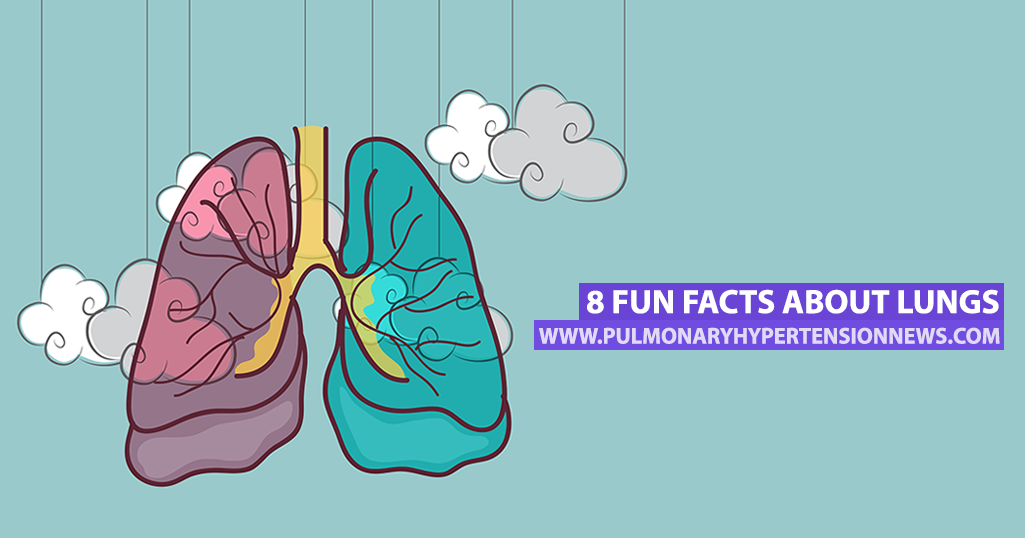8 Fun Facts About Lungs

Pulmonary hypertension is a rare lung disease characterized by increased blood pressure in the pulmonary arteries that eventually makes breathing very difficult.
MORE: Learn why every breath matters for patients with pulmonary hypertension
Breathing is the most important thing our body does. Without lungs to breathe, we can’t live. It sounds simple, but how lungs work — in fact, our entire respiratory system — is very complex.
Here are some very interesting facts from the Lung Institute that are worth knowing.
1. A person usually breathes an average of 13 pints of air every minute.
2. Lungs aren’t the same size. To accommodate the heart, the right lung is larger than the left lung — for humans, that is.
3. Lungs float on water. It’s not something most people are aware of but, actually, the lungs are the only organs in the human body that are capable of floating on water.
MORE: What do you know about the symptoms and possible causes of pulmonary hypertension?
4. Lungs and tennis courts can be the same size. What do lungs and a tennis court have in common? Their size! It seems pretty impossible, but if the lungs were opened flat they would be so big that they would cover the size of a tennis court!
5. Oxygen only plays a small part in breathing. The air we breathe contains 21 percent oxygen, but our bodies only use 5 percent — the rest is exhaled.
Ask questions and share your knowledge of PH in our forums.
6. Seventy percent of waste is eliminated through your lungs just by simply breathing.
7. Children and women breathe faster. Children and women have a higher breathing rate than men.
8. Humans exhale up to 17.5 mililiters of water per hour.
MORE: Check out how you can increase your lung capacity with breathing exercises.
Pulmonary Hypertension News is strictly a news and information website about the disease. It does not provide medical advice, diagnosis or treatment. This content is not intended to be a substitute for professional medical advice, diagnosis, or treatment. Always seek the advice of your physician or other qualified health provider with any questions you may have regarding a medical condition. Never disregard professional medical advice or delay in seeking it because of something you have read on this website.







